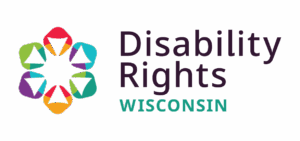How We Help
Disability Rights Wisconsin is a nonprofit organization that provides legal advocacy and rights protection for adults and children with disabilities. Our staff attorneys, advocates and investigators address civil rights violations, abuse and neglect, institutionalization, inability to access to needed services and education, crime victimization, and discrimination.
We serve people with disabilities who are residents of Wisconsin. We serve people with disabilities of all ages, including (but not limited to) people with intellectual or developmental disabilities, people with mental illness, people with physical or sensory disabilities, and people with traumatic brain injury.
Disability Rights Wisconsin respects the cultural values and personal choices of all those seeking our services. We value diversity and inclusion in all aspects of our agency’s operations. Regardless of your race, ethnicity, legal status, sexual orientation, or gender identity, we are here to help.
 As the state’s Protection and Advocacy System, DRW makes every effort to help as many individuals as possible. Our resources do not allow us to take all cases. Each year, Disability Rights Wisconsin sets priorities for the cases that we will consider. Some of the disability-related issues we can help address are:
As the state’s Protection and Advocacy System, DRW makes every effort to help as many individuals as possible. Our resources do not allow us to take all cases. Each year, Disability Rights Wisconsin sets priorities for the cases that we will consider. Some of the disability-related issues we can help address are:
- Access to mental health and support services that provide individualized treatment.
- Abuse, neglect, and rights violations in an institution, prison or jail.
- Rights to a least restrictive environment, privacy, choice, dignity and other basic human and civil rights.
- Barriers to a free and appropriate education, K-12 special education, transition services and post-secondary education.
- Discrimination in employment, as well as accessing, maintaining or regaining employment.
- Access to voting, including registration, vote casting, and accessible polling places.
- Access to assistive technology and devices, such as communication devices and power wheelchairs.
- Supported Decision Making as an alternative to guardianship.
- Discrimination in housing, architectural barriers, service animals, transportation.
- Investigation of stolen or misused funds, or exploitation or neglect by representative payees.
Additional Disability-Related Advocacy Services
These programs are funded through state, federal and other contracts:
- Victim Advocacy Program—Helps people with disabilities who have experienced crime; includes advocacy to move forward, find justice and obtain safety and stability.
- DRW Medicare Part D Helpline—Helps people choose a plan, enroll, understand coverage and billing, and how to appeal decisions related to Medicare Part D.
- SSI Managed Care External Advocacy Project—Provides information and advocates with HMOs for needed services or equipment for people enrolled in SSI Managed Care.
- Family Care and IRIS Ombudsman Program—Assists FC/IRIS enrollees age 18-59 in resolving issues, understanding their rights, and filing complaints and appeals with MCOs and IRIS agencies.
- Attorney Support for Disability Benefit Specialists—Provides technical assistance, training and case support for Disability Benefit Specialists located in Aging and Disability Resource Centers.
